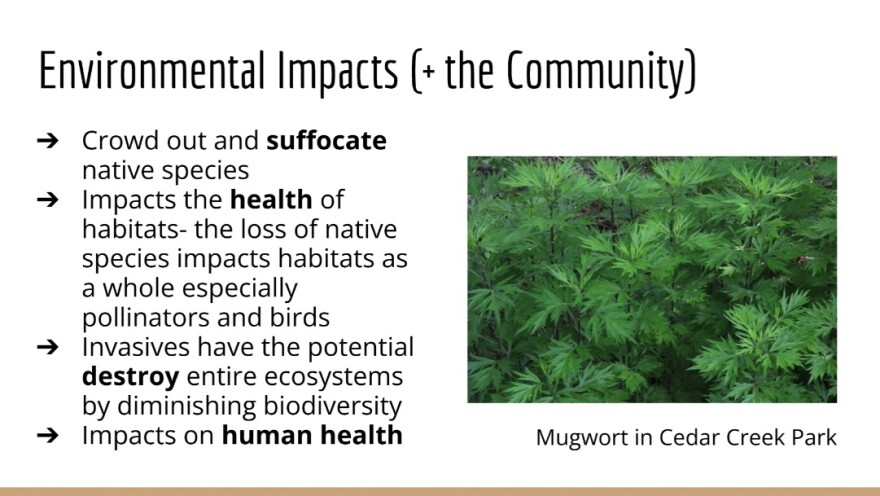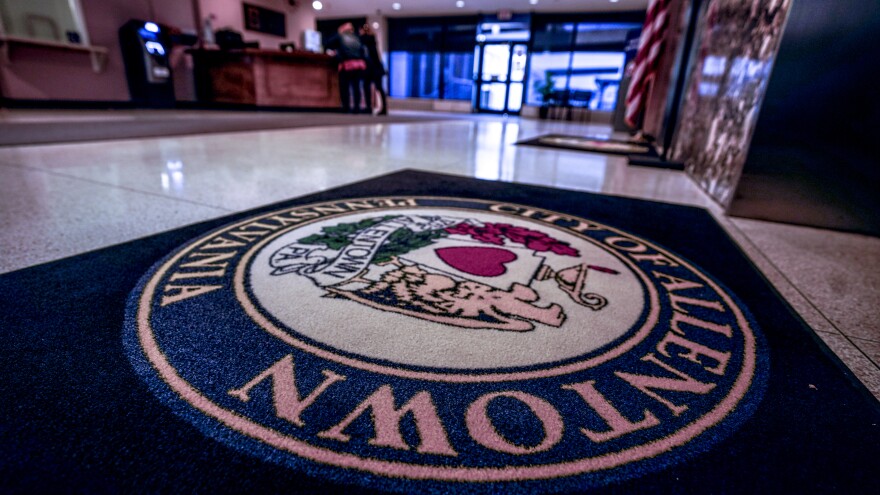ALLENTOWN, Pa. — Environmental officials have a new recommendation for City Council — ending, or at least reducing, herbicide use across the city.
The Allentown Environmental Advisory Council on Monday unanimously approved a letter and draft resolution, urging city officials to use non-chemical methods to dispatch invasive plants.
“The AEAC recognizes the City’s commitment to addressing invasive species and maintaining public lands, but we also acknowledge the growing health, environmental and ecological concerns associated with herbicide use."Allentown Environmental Advisory Council
“The AEAC recognizes the City’s commitment to addressing invasive species and maintaining public lands, but we also acknowledge the growing health, environmental and ecological concerns associated with herbicide use,” according to the letter.
“Passing this resolution would represent an important step toward safer, more sustainable land management practices.”
‘A turnkey, shovel-ready resolution’
The letter, and accompanying resolution, comes two months after Meredith Amerman, a Muhlenberg College student and EAC intern, gave a presentation about the environmental and economic impacts of invasive plants throughout the city.
While her research found invasive species — like Japanese knotweed, mugwort and English ivy, among others — can choke out native species, decreasing biodiversity and negatively impacting the local environment, funding and community education to eradicate them continue to be challenges.

“One of the recommendations that they proposed that we would bring to City Council and the administration was to reduce the use of herbicides,” said Kyle Ropski, EAC chair.
“While that is one of the ways that the city uses to mitigate invasive species, we also know that they're carcinogens, and they give people cancer, and they're definitely not safe, and we shouldn't be putting it out into our environment.”
The letter includes sustainable alternatives to herbicides, including expanded native planting, smothering techniques, timed cutting and managed grazing.
The resolution urges the city’s Parks and Recreation Department, specifically, “to reduce or eliminate the use of herbicides on public lands, in recognition of the health, environmental and financial harms associated with their use, and to pursue sustainable land management alternatives in order to protect the wellbeing of Allentown residents, city staff, and the local ecosystem.”
“The hope would be that we would approve this letter to be sent out here tonight, and that we would pass on to the administration and City Council, and that hopefully this would be sort of a quote-unquote, like a turnkey, shovel-ready resolution,” Ropski said.
‘A huge step forward’
Also during the meeting, members discussed the upcoming public hearing and City Council vote on ZONE Allentown, a project overhauling the city’s zoning ordinance and Subdivision and Land Development Ordinance, or SALDO.
“If you've been following it along the process, this has been years in the making, and there's a lot of really positive environmental, EAC-sort-of-initiative-related things that are being included that we just didn't have,” Ropski said.
“So, this is a huge step forward.”
In the works since 2021, the project also includes a new zoning map, and aims to streamline approval processes, spur development in some locations and update design standards for new projects.
The EAC in June approved a letter supporting the plan, as well as its recommendations.
A public hearing and adoption vote for both ordinances is scheduled for 6 p.m. Wednesday during City Council’s regular meeting. If adopted, new regulations would take effect Jan. 1.


